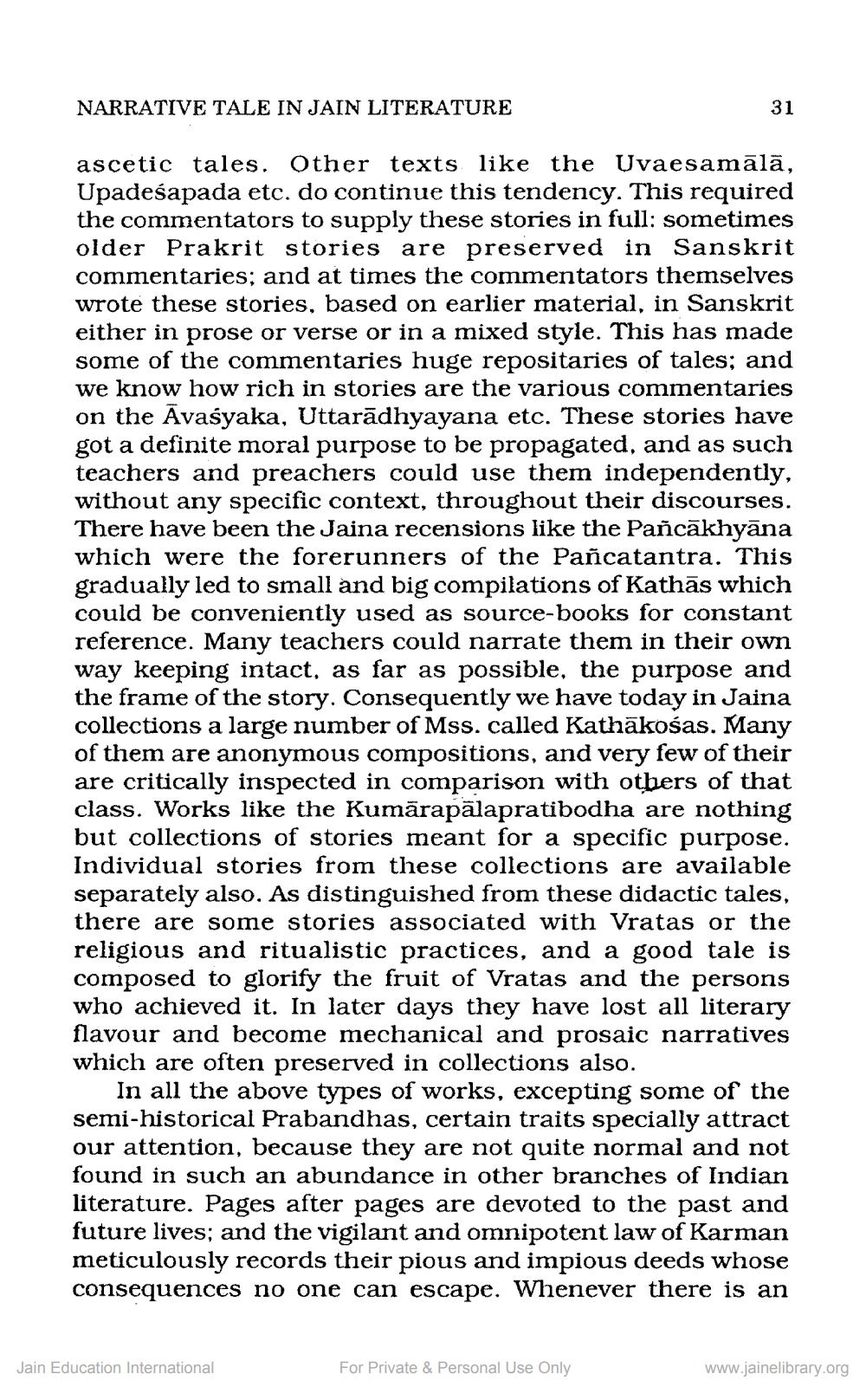________________
NARRATIVE TALE IN JAIN LITERATURE
31
ascetic tales. Other texts like the Uvaesamālā, Upadeśapada etc. do continue this tendency. This required the commentators to supply these stories in full: sometimes older Prakrit stories are preserved in Sanskrit commentaries; and at times the commentators themselves wrote these stories, based on earlier material, in s either in prose or verse or in a mixed style. This has made some of the commentaries huge repositaries of tales; and we know how rich in stories are the various commentaries on the Avasyaka, Uttarādhyayana etc. These stories have got a definite moral purpose to be propagated, and as such teachers and preachers could use them independently, without any specific context, throughout their discourses. There have been the Jaina recensions like the Pañcākhyāna which were the forerunners of the Pañcatantra. This gradually led to small and big compilations of Kathās which could be conveniently used as source-books for constant reference. Many teachers could narrate them in their own way keeping intact, as far as possible, the purpose and the frame of the story. Consequently we have today in Jaina collections a large number of Mss. called Kathākośas. Many of them are anonymous compositions, and very few of their are critically inspected in comparison with others of that class. Works like the Kumārapalapratibodha are nothing but collections of stories meant for a specific purpose. Individual stories from these collections are available separately also. As distinguished from these didactic tales, there are some stories associated with Vratas or the religious and ritualistic practices, and a good tale is composed to glorify the fruit of Vratas and the persons who achieved it. In later days they have lost all literary flavour and become mechanical and prosaic narratives which are often preserved in collections also.
In all the above types of works, excepting some of the semi-historical Prabandhas, certain traits specially attract our attention, because they are not quite normal and not found in such an abundance in other branches of Indian literature. Pages after pages are devoted to the past and future lives; and the vigilant and omnipotent law of Karman meticulously records their pious and impious deeds whose consequences no one can escape. Whenever there is an
Jain Education International
For Private & Personal Use Only
www.jainelibrary.org




